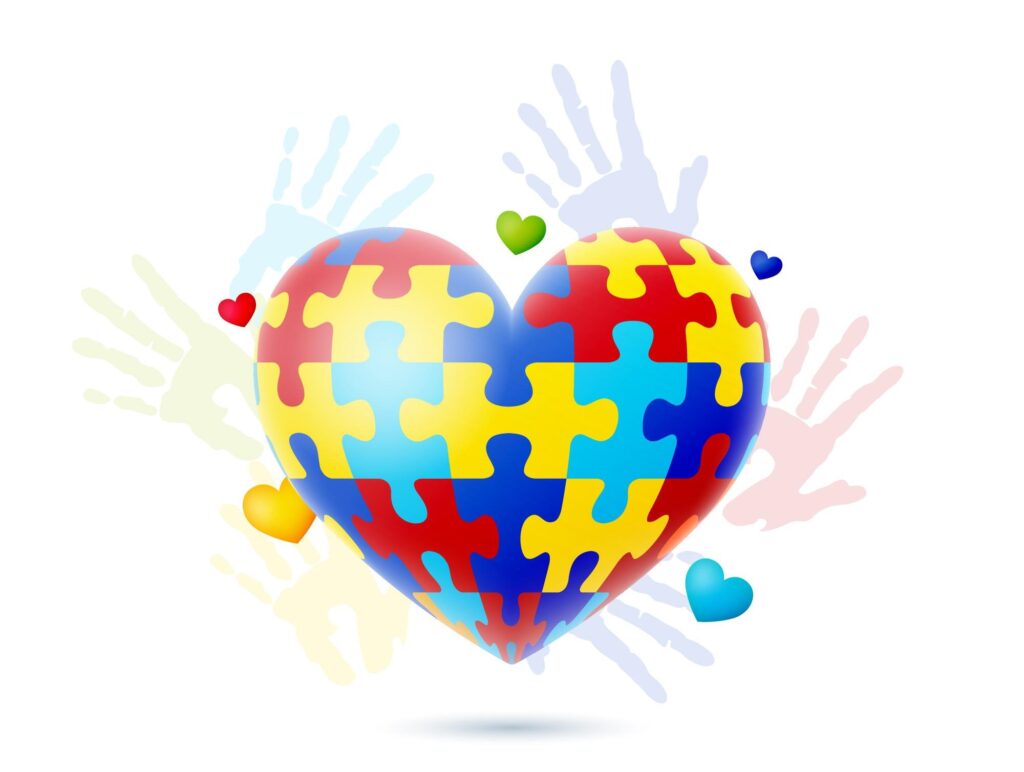Autism is not an excuse.
That’s such an infuriating phrase we hear sometimes. But what does it really mean?
I’ve thought about this a lot and this is where I am. While it’s true that autism presents unique challenges, it doesn’t have to be a crutch. It doesn’t define a person’s entire capability.
That’s why I’m teaching my son. And that’s how I hope my son leads his life.
In this article, we’ll explore the statement’s implications and how it impacts both individuals with autism and the wider community.
Understanding Autism
Autism is a complex neurodevelopmental condition that affects individuals differently, hence the term “spectrum.”
This means that while some individuals may have severe challenges in areas like communication and repetitive behaviors, others might face milder symptoms or even have remarkable abilities in certain areas.
It’s essential to remember that each person with autism is unique, and while there are commonalities, their individual experiences and challenges can differ greatly.
The phrase “autism is not an excuse” can be both valid and problematic depending on the context in which it’s used.
Autism is Not an Excuse in Valid Context
First things first. Individuals with autism can live a normal life. So, if they can lead a normal life, doesn’t that mean that their behavior should be measured with a similar, albeit a little different, measuring stick as others.
If someone uses autism as a reason for any mischief or lack of effort, you can’t let it be used as a blanket excuse.
Everyone, regardless of neurodiversity, has a responsibility to learn, grow, and manage their behaviors to the best of their ability and within the limits of their condition.
When Autism is Not an Excuse Becomes Problematic
However, if this phrase is used to dismiss the legitimate challenges that someone with autism might face, it’s problematic.
For example, sensory overload is a real challenge for many individuals with autism, and they might react to certain stimuli more intensely than neurotypical individuals.
Dismissing their genuine discomfort or challenges by saying “autism is not an excuse” is not only invalidating but can also be harmful.
Yes, autism isn’t an esxcuse for many things. But people dealing with individuals need to understand which behaviors are natural (although might seem unnatural to us) and uncontrollable. And which behaviors are learned and can be controlled.
The Real Challenges: Going Beyond the Excuse
When discussing autism, it’s imperative to understand the genuine hurdles many on the spectrum face daily.
These aren’t excuses but real, often overwhelming, challenges.
1. Sensory Overload
For instance, sensory overload is a common issue. Imagine being in a room where every light is glaringly bright, every sound is magnified tenfold, and even the texture of your clothes feels unbearably rough.
For many with autism, this heightened sensitivity is a constant reality, making seemingly ordinary situations incredibly taxing.
2. Navigating Social Communication
Social communication is another significant challenge. Engaging in simple small talk, understanding non-verbal cues, or even making eye contact can be daunting. It’s not about being rude or aloof; it’s a genuine difficulty in processing and reciprocating social interactions.
My Own Experience When I Could’ve Used Autism as an Excuse
During a flight, my son, who has autism, was being obstinate. His overall behavior had made it quite obvious to other passengers that he was different.
But he was using that to his advantage. He wasn’t in an discomfort. He was just being mean because I wouldn’t let him eat more crisps.
So, he knocked our meal off the table on to the passenger next to us.
When I tried to discipline him, my friend who was traveling with me tried to intervene. She made me look like the bad guy, as if I was being too strict with him. Only because he has autism.
Her comments highlighted a general lack of understanding about autism. It’s crucial to approach such situations objectively. You cannot use autism as an excuse for bad behavior.
The Flipside and the Need for
On the other side of the coin is not understanding when a behavior is a result of a stimuli. I understand that its a tricky path, a fine line. But, as we as a society continue to evolve, this is a line that has to be drawn.
Understanding autism goes beyond knowing its definition or recognizing its symptoms. It’s about empathy, patience, and the willingness to see the world through their eyes.
Understanding Over Judgement
Quick judgments can overshadow attempts to understand, especially regarding autism. It’s essential to see the world through their unique lens and recognize that every outburst has a reason behind it.
The Reality of Sensory Overload
For many with autism, daily life can feel like navigating an overwhelmingly loud and bright world. An unexpected behavior is often a reaction to this sensory overload.
Offering Support Over Criticism
As a society, it’s crucial to offer understanding and support rather than judgment. Everyone is navigating their challenges, and what’s needed is acceptance and empathy.
The Power of Understanding
Autism, like any condition, requires patience, understanding, and empathy from people – that’s for sure.
Quick judgments without knowledge can perpetuate misconceptions and stereotypes, which further isolate and misunderstand individuals with autism. By promoting awareness and fostering environments of compassion, we can make the world more inclusive and empathetic. It’s not just about understanding autism – it’s about recognizing the inherent value and experiences of every individual.
Whether you know someone with autism or not, taking the time to learn and empathize can make all the difference.
That said, we must also begin to understand what is autistic behavior and what is not. Autism cannot be used as a blanket excuse for everything.
